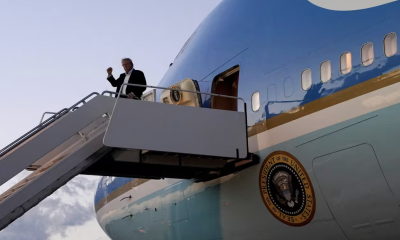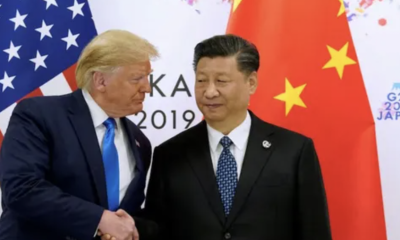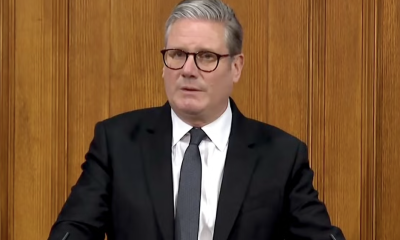

Gillingham, Kent — May 12, 2025 Kent Police have issued a formal apology to 71-year-old retired special constable Julian Foulkes following his arrest in November 2023...


Trump Defends Qatar’s $400M Jet Gift as Stopgap Air Force One Amid Ethical Firestorm President Donald Trump is facing growing scrutiny over a plan to temporarily...


US and China Agree to 90-Day Trade Truce in Bid to De-Escalate Economic Tensions Geneva, May 12, 2025 — The United States and China have reached...


Keir Starmer Unveils Sweeping Immigration Reforms to Slash Net Migration Prime Minister Keir Starmer has unveiled a wide-ranging overhaul of the UK’s immigration system, vowing to...


India and Pakistan Agree to Immediate US-Brokered Ceasefire Amid Kashmir Escalation India and Pakistan have agreed to an immediate ceasefire following a rapid escalation in hostilities,...


Sir Tom Farmer, Founder of Kwik Fit, Passes Away at 84 The founder of the Kwik Fit garage chain, Sir Tom Farmer, has passed away at...


Reform UK Makes Major Gains in Local Elections as Labour and Conservatives Stumble Reform UK has made a significant breakthrough in the 2025 local elections, securing...


Two men sustained serious injuries in separate incidents during Leeds United’s promotion celebration parade, police confirmed on Monday. A 34-year-old man suffered serious head injuries following...


Bank of England Cuts Interest Rate to 4.25% Amid Economic Slowdown Concerns The Bank of England has reduced its base interest rate by 0.25 percentage points,...


European Leaders Urge Russia to Accept 30-Day Ceasefire Proposal in Ukraine In a powerful show of unity, the leaders of the United Kingdom, France, Germany, and...